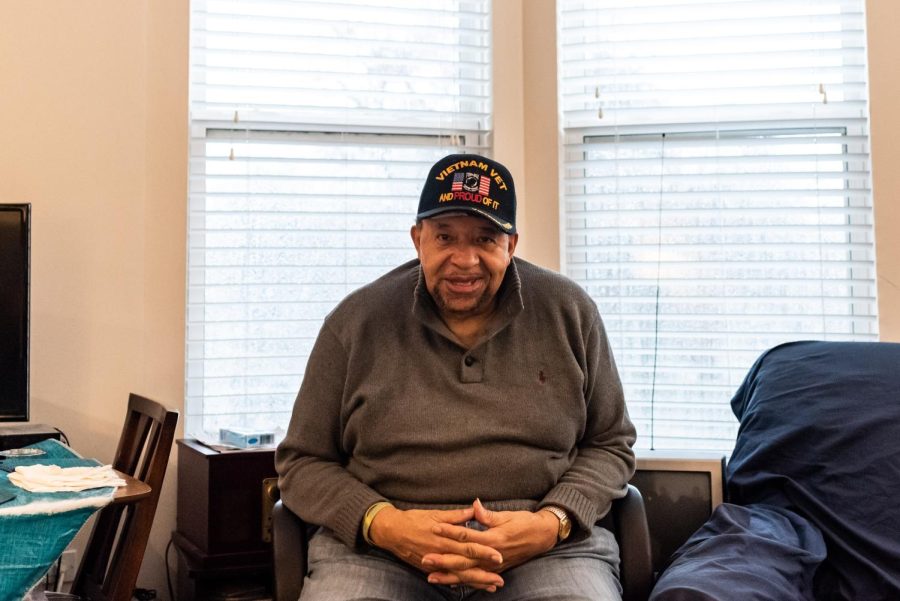‘Nothing is etched in stone’: Reparations recipients ask city to use money for rent as deadline approaches
Katie Chen/The Daily Northwestern
Kenneth Wideman sits at home in his favorite chair. Wideman and his sister both live in rented apartments and, due to city policy, can’t use their reparations grants for rent.
March 1, 2023
Kenneth Wideman has lived in Evanston nearly his entire life. He tells people how much he loves his hometown whenever he travels, he said.
“I was raised here,” Wideman said. “My blood is here.”
His Evanston pride grew in 2019 when he learned the city was creating a Restorative Housing Program to address the city’s historic discriminatory housing policies and practices.
Wideman, 77, applied for the program along with his 75-year-old sister. In January 2022, they were both selected to be in the first group of 16 residents to receive a $25,000 grant for home purchase, mortgage payments or home improvement.
However, Wideman said neither he nor his sister have been able to use their $25,000 because they rent their apartments and don’t own property. Neither has plans to buy property, he said.
According to the city website, the reparations program doesn’t provide cash payments because doing so would subject recipients to taxes.
In March 2022, the city told Wideman he and his sister had a one-year deadline to use their reparations money, according to Wideman.
With the reparations grant set to expire, Wideman said the city should consider letting him and his sister use the reparations money toward rent or furniture. At the Feb. 2 Reparations Committee meeting, Wideman — a Vietnam War veteran — appeared in public comment to ask for a way for him and his sister to receive reparations.
“I fought for this country, and I’ve been giving back since Vietnam,” he said. “I’ve given to this community for a long time.”
Reparations Committee member Carlis Sutton said he thinks the siblings should receive their reparations grants in progressive cash payments.
Sutton called it “insensitive” for the city to withhold the money.
“Through reparations, the city is trying to compensate for past harm,” Sutton said. “So why (is it) causing the Widemans harm now?”
Activist Meleika Gardner also attended the Feb. 2 committee meeting and said she felt “heartbroken” after hearing Wideman’s story.
Gardner said she originally supported Evanston’s reparations but no longer approves of the program since it is not inclusive of all Black residents.
“I’m really upset with how Evanston is changing what reparations is,” Gardner said. “They’re watering down reparations. It’s not reparations if you’re excluding the already excluded.”
Like Sutton, Gardner suggested expanding the program to distribute reparations through direct cash payments, which would allow recipients to use the money for rent.
City Corporation Counsel Nicholas Cummings said the reparations program aims to bridge the wealth gap between Black and white Evanston residents.
Rental assistance, he said, would not help accomplish that goal.
“Ultimately, the only party that benefits from a rental assistance program is the landlords, and not necessarily the tenant,” Cummings said.
Sutton disagreed. He said rental assistance is similar to the current reparations program, under which money eventually goes to contractors and banks.
Wideman said he hopes the city will find a solution to fulfill the grants to him and his sister. He wants to see the program shift to include people who do not own property.
“Nothing is etched in stone,” Wideman said. “I just want the city to do the best thing for the community.”
Email: rachelschlueter2026@u.northwestern.edu
Twitter: @rschlueter26
Related Stories:
— Evanston requests community input on reparations program
— Reparations Committee extends contract with nonprofit to distribute housing grants
— ‘Too little, too late’: Black residents disillusioned by pace of Evanston reparations program



